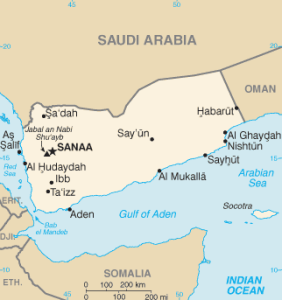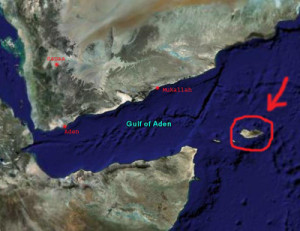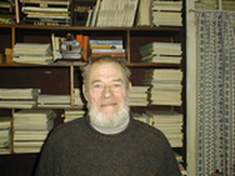Socotra
Moreau, Alain
 Alain Moreau is a French writer who has written a series of articles debunking a number of the suggested locations for Atlantis including, the North Sea(a), Antarctica & Spartel Island(b), Socotra(c) and Santorini(d). Throughout his criticisms he loses no opportunity to promote his own preferred Atlantis location. in the Atlantic Ocean.
Alain Moreau is a French writer who has written a series of articles debunking a number of the suggested locations for Atlantis including, the North Sea(a), Antarctica & Spartel Island(b), Socotra(c) and Santorini(d). Throughout his criticisms he loses no opportunity to promote his own preferred Atlantis location. in the Atlantic Ocean.
Aden
 Aden was formerly a British possession and is now part of war-torn Yemen. Stan Deyo, author of The Vindicator Scrolls[784], in 1989 located Atlantis in Aden. A Dutch amateur Egyptologist, Alexander Muster, also promotes a similar idea through a variety of Internet forums. A former French police chief, Jacques Hébert, has proposed that the Yemeni island of Socotra was part of the Atlantean civilisation.
Aden was formerly a British possession and is now part of war-torn Yemen. Stan Deyo, author of The Vindicator Scrolls[784], in 1989 located Atlantis in Aden. A Dutch amateur Egyptologist, Alexander Muster, also promotes a similar idea through a variety of Internet forums. A former French police chief, Jacques Hébert, has proposed that the Yemeni island of Socotra was part of the Atlantean civilisation.
>Yemen’s long history was highlighted just before the end of the last century, when a group of megaliths were discovered, by chance, on the coastal plain of western Yemen(c).<
In 2008, Gary Vey and John McGovern claimed to have evidence that the Ark of the Covenant had been buried in Yemen (the ancient kingdom of Saba)(b).
>Immanuel Velikovsky placed the Garden of Eden in Aden(d).<
A recent Russian website(a) also places Atlantis in the Gulf of Aden opposite the legendary land of Punt in what is now Somalia.
(a) https://sites.google.com/view/atlantis-aden/main
(b) Proto-Canaanite / First Tongue / Ark of the Covenant (viewzone.com)
Socotra
Socotra is the name of a small archipelago in the Indian Ocean. It has a population of over 40,000 and is administered by the Republic of Yemen. In ancient times it was known as the Dioscorides or ‘Isle of the Dioscuri’ (Castor and Pollux).
 Our interest in Socotra stems from the fact that Jacques Hébert, a former French police chief identified the island as the location of Atlantis[373]. He also claims that the strait of Bab el Mandeb situated to the north was the site of the Pillars of Heracles.
Our interest in Socotra stems from the fact that Jacques Hébert, a former French police chief identified the island as the location of Atlantis[373]. He also claims that the strait of Bab el Mandeb situated to the north was the site of the Pillars of Heracles.
On Christmas Eve, 2010 the Yemen news agency reported(a) that a Russian team of archaeologists had discovered an ancient city on Socotra, the main island of the group. Unfortunately, what they found has been dated to around 200 AD and so provides no support for Hébert’s theory.
Alain Moreau has written a critical review of Hébert’s theory(b).
(a) Ancient city unearthed in Socotra Island (archive.org) *
(b) Les fausses Atlantides (1) L’île Socotra – LES CLES DE L’INEXPLIQUE (archive.org) *
Hébert, Jacques
Jacques Hébert is the author of Atlantide: La Solution Oubliee[373] concerning Atlantis. As a former Parisian police  chief, he claims to have applied his skills in that field to solving the mystery of Plato’s island. He critically re-examines the original text and offers an interpretation that he believes provides a more rational and harmonious reading of the narrative. His conclusion is that Atlantis lay in the Indian Ocean and that its culture was derived from the Indus valley. He specifically identifies the Yemeni island of Socotra as part of the Atlantean civilisation.
chief, he claims to have applied his skills in that field to solving the mystery of Plato’s island. He critically re-examines the original text and offers an interpretation that he believes provides a more rational and harmonious reading of the narrative. His conclusion is that Atlantis lay in the Indian Ocean and that its culture was derived from the Indus valley. He specifically identifies the Yemeni island of Socotra as part of the Atlantean civilisation.
Hébert postulates that this empire had at least trade connections in the eastern Mediterranean and quite possibly had a colony in the region that produced the predecessors of the Phoenicians.
Hébert identifies Bab el Mandeb as Plato’s Pillars of Heracles, by assuming that Solon mistook the description of that strait, given to him by the priests of Sais, with the Strait of Gibraltar, which has similar features. The earthquake that destroyed Atlantis is attributed by him to a close encounter with an extraterrestrial body.
>>In 2004, Hébert’s Atlantis book was published in English [2107]. In the same year, Hébert gave an interview, in French, the text of which can be read online(a).<<
(a) Wayback Machine (archive.org) (French)
